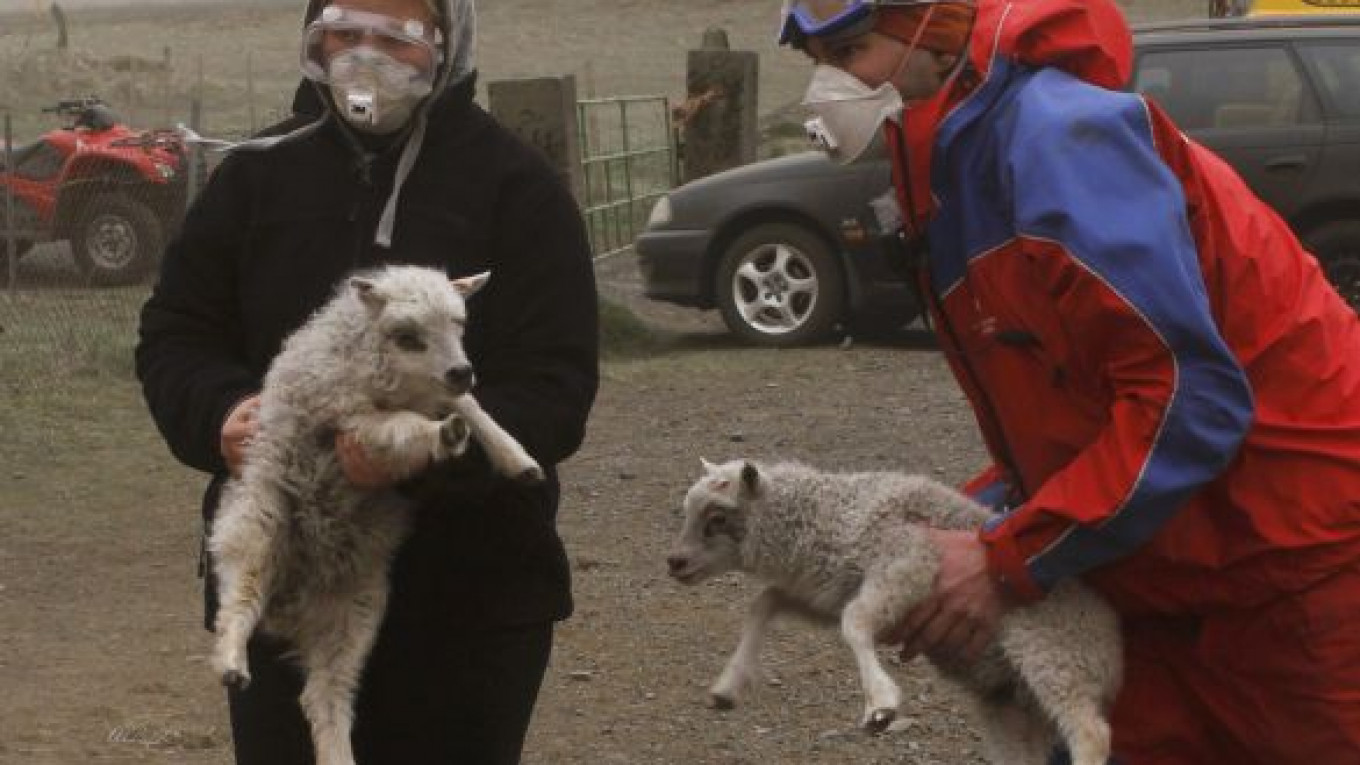Air travel between Russia and northern Germany was disrupted for hours Wednesday as a cloud of abrasive ash from Iceland's Grimsvotn volcano continued its drift to the southeast.
Aeroflot and Lufthansa canceled daytime flights to Hamburg and Berlin, although Aeroflot later rescheduled the flight to Berlin for Wednesday evening, Interfax said. Rossiya delayed its Berlin-St. Petersburg flight by several hours.
In addition, Transaero reported 30-minute delays on its trans-Atlantic flights to Toronto and New York.
German airspace was partially closed for several hours early Wednesday over ash concerns, The Associated Press said. All airports resumed operations later in the day.
Neighboring France and Belgium did not implement any air travel restrictions. The Kremlin said President Dmitry Medvedev was set to depart for the G8 summit in the French town of Deauville on Thursday as planned.
Grimsvotn decreased its activity drastically on Wednesday, air safety watchdog Eurocontrol said.
The ash cloud was set to reach St. Petersburg by Thursday, but both Eurocontrol and the Russian federal weather bureau said it would not affect domestic air travel.
In Europe, some 1,000 flights have been grounded since the eruption started late Saturday, half of them in Britain. Nevertheless, no Russian tourists have canceled upcoming tours of Iceland, where airports were reopened this week, Interfax reported, citing a tourist industry representative.
Another Icelandic volcano, Eyjafjallajokull, caused weeklong disruptions to air traffic across Europe last year. But local geophysicist Pall Einarsson told AP that Grimsvotn's eruption was not expected to be as disastrous.
A Message from The Moscow Times:
Dear readers,
We are facing unprecedented challenges. Russia's Prosecutor General's Office has designated The Moscow Times as an "undesirable" organization, criminalizing our work and putting our staff at risk of prosecution. This follows our earlier unjust labeling as a "foreign agent."
These actions are direct attempts to silence independent journalism in Russia. The authorities claim our work "discredits the decisions of the Russian leadership." We see things differently: we strive to provide accurate, unbiased reporting on Russia.
We, the journalists of The Moscow Times, refuse to be silenced. But to continue our work, we need your help.
Your support, no matter how small, makes a world of difference. If you can, please support us monthly starting from just $2. It's quick to set up, and every contribution makes a significant impact.
By supporting The Moscow Times, you're defending open, independent journalism in the face of repression. Thank you for standing with us.
Remind me later.






